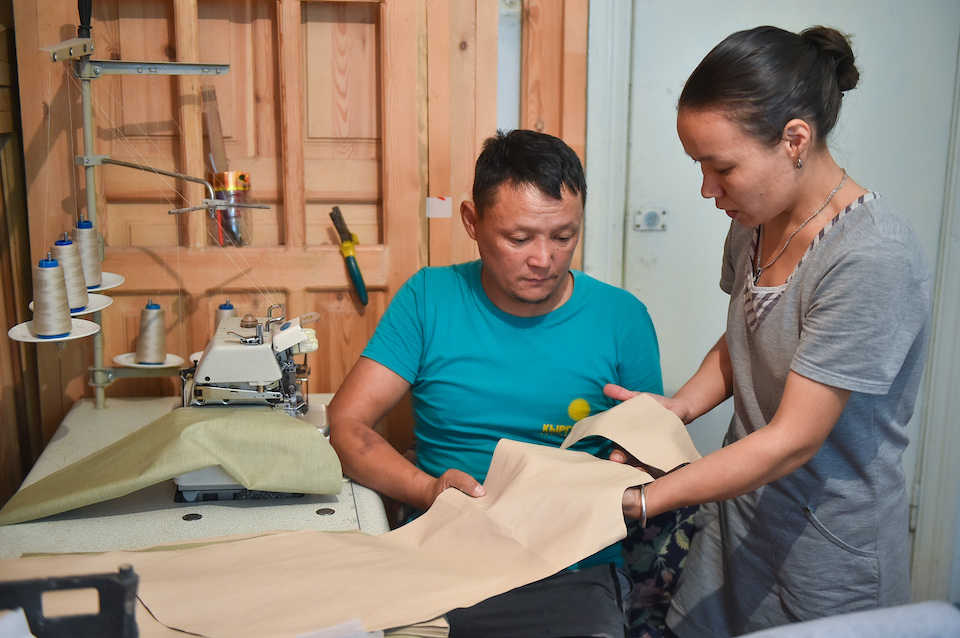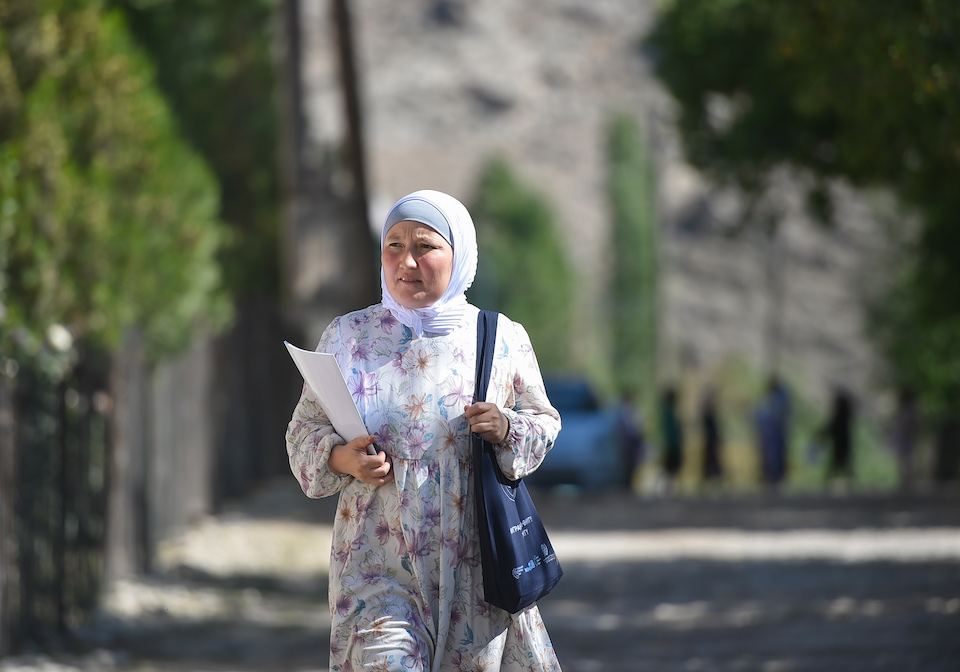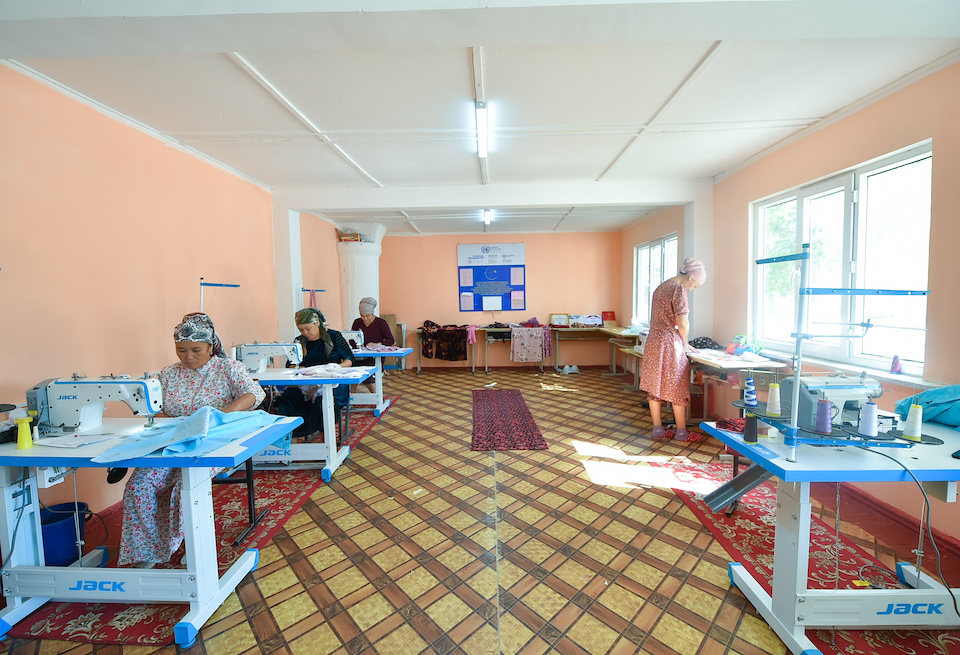Families start businesses, redistribute chores, and transform gender norms in Kyrgyzstan
Date:
Kyrgyzstan is one of the most remittance-dependent countries in the world, with a recent UN report revealing that 800,000 to 1 million of the country’s 6.6 million citizens work abroad on a regular basis. Around half are women (with estimates ranging from 40–53 per cent). To address outflow migration challenges at the community level, from 2019–2021, UN Women, the International Organization for Migration (IOM) and the International Labour Organization (ILO) jointly implemented a project funded by the UN Peacebuilding Fund. It sought to change harmful gender stereotypes, especially among women migrants and their families, and support the participation of women and girls in inclusive community development. By helping women explore their strengths and realize their business ideas, the project created livelihood options in areas with high migration outflows. Three beneficiaries shared their stories with UN Women on how the project changed their lives for the better.

Meerim and Azamat Nurbayev, from Talas, a province in northwest Kyrgyzstan, are just one couple from the more than 6,000 community members in six pilot municipalities that took part in the project. Participating in the project not only helped them to open their own sewing business but also transformed their relationship.
When Meerim started attending the Gender Active Learning System (GALS) workshops in 2020, her husband Azamat found himself listening in on one of her online workshops one day and found that the content resonated with him. “I decided to listen in on others. I asked my wife to turn up the volume the next time so I could hear better. That was how we became involved in the project together,” he recalls.
Inspired by the workshops and with the support of the project, Meerim and Azamat wrote a family business project proposal together and won a grant for a sewing machine. Now, the couple provides jobs for two more women and plans to expand their business to provide jobs for another five or six.
For Azamat, getting involved was only the first step. Over time, he has learned to sew himself as well, breaking traditional gender norms. “I am proud that I now know how to sew and that I can support my wife,” he says. In Kyrgyzstan, especially in the more conservative south of the country, gender norms still determine suitable professions for women and men.
The project used the GALS methodology to encourage 1,600 community members to actively apply GALS tools to renegotiate power relations within families and challenge harmful gender norms and attitudes.
The GALS training also changed the dynamics in Aida Nurbaeva’s family in Uchkun village, central Kyrgyzstan. After doing various GALS exercises, Aida began redistributing household duties with her husband, which freed up time for her to invest in self-development. She used this time to try her hand at different businesses to supplement her family’s income – from opening a creative workshop to producing organic fertilizers and dried fruit.

However, Aida believes that the most valuable contribution the women involved in the training have made is not to their own families but to society. She feels that her entrepreneurial spirit has inspired other women in her village to do the same. As part of the project, 145 self-help groups were formed that offer peer-to-peer support to women.
Aida says all these accomplishments would have not been possible if she hadn’t believed in herself: “The GALS process gave me a lot, but most importantly, it made me believe in myself, in my strength and that it is possible to work in my home country without the need to migrate. Now I know that I should not be afraid. You need to believe in yourself, take the first step and slowly walk towards your goal,” says Aida.
Similar to Aida, Danakhan Kulueva from Orozbekov in the Batken region, also found her self-confidence through GALS process and peer-support. Participating in GALS workshops together with other women in her community, she was inspired to found her own sewing business employing eight experienced artisans, and to open a training centre. Under the guidance of Danakhan and two other women mentors from the project, 40 students graduated from the sewing training centre over the summer 2021.

With the support of the project, Danakhon recognized the extend of her own strength and that she can lead other women: “I realized that I am strong, that I have enough knowledge and strength to achieve my goals. What’s more, I now encourage young girls and women to take part in such projects, so that they can realize their strengths too.”
GALS is a participatory method to advance women’s empowerment and gender equality. It starts from having participants reflect on individual experiences and supports them in identifying opportunities in positive gender relations. GALS provides a space for open dialogue by asking participants to create their own vision of change for gender equality.